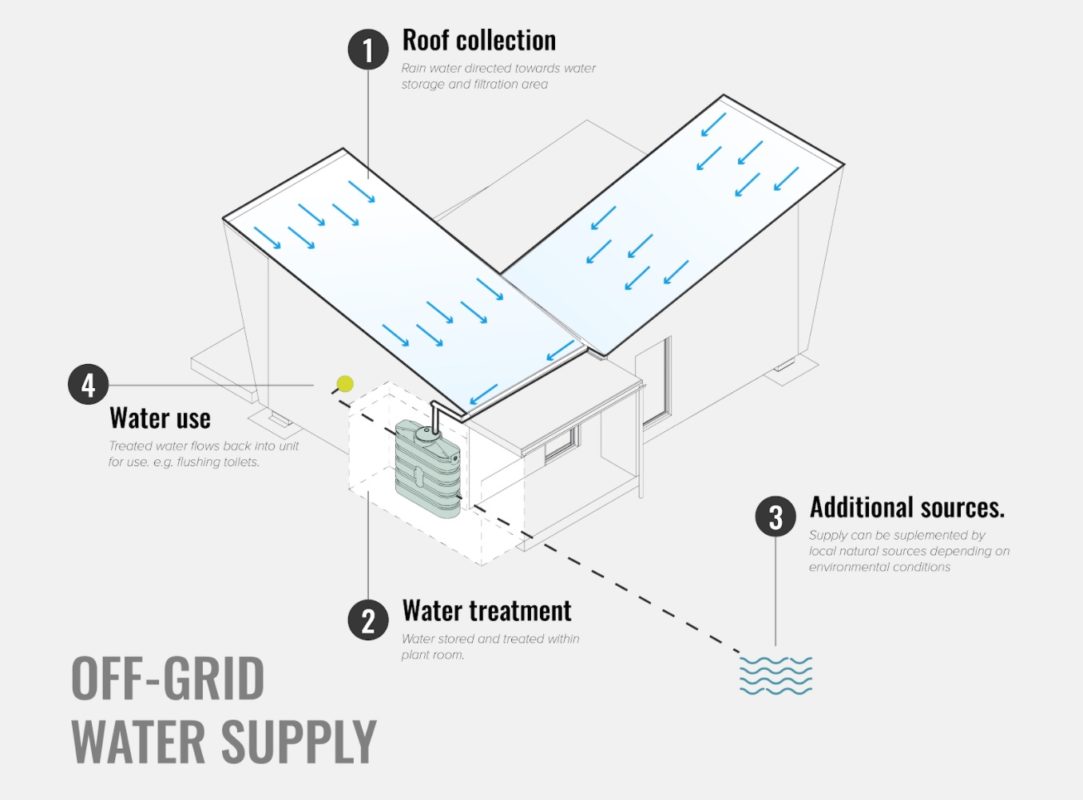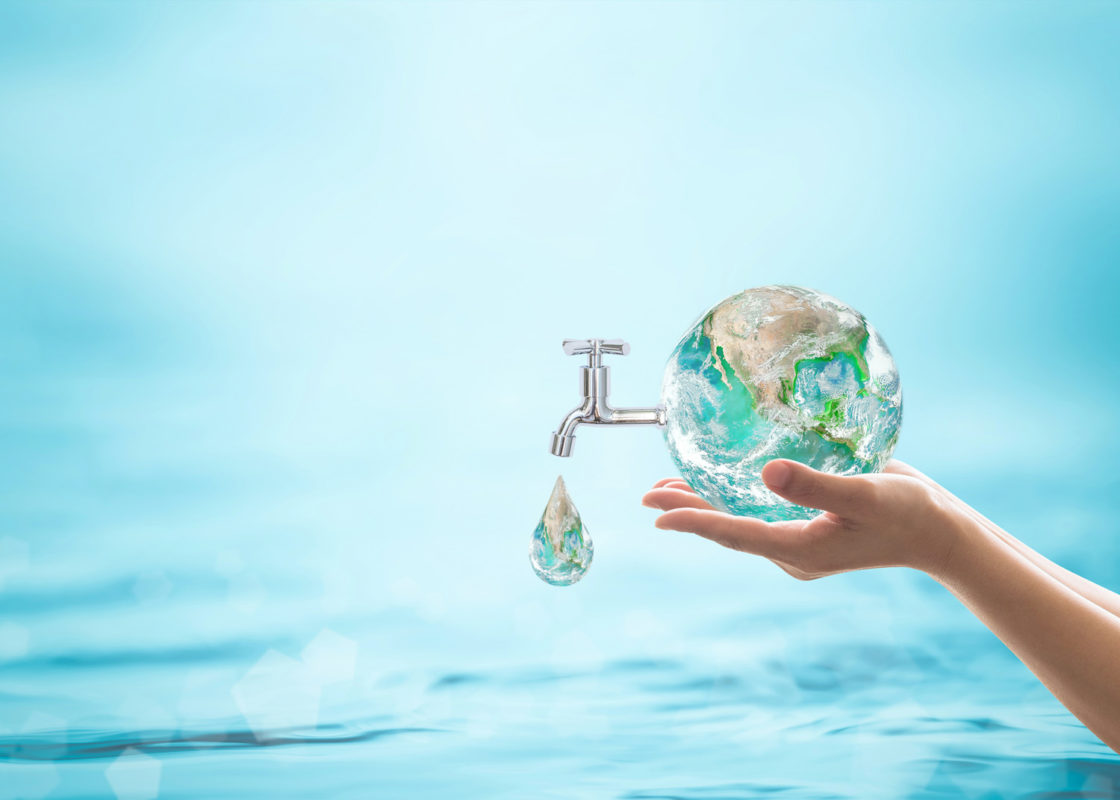Claiming to use 100% renewable energy sources is not something to say lightly. Generating electricity from solar PV panels is the easy part. Ensuring plentiful, clean and treated fresh water starts to get trickier.
First the location of the holiday accommodation building has to be considered. How much rainfall can be expected at that longitude and latitude? From this calculation we learn what percentage of days in the year we are likely to be short of water and therefore what percentage of fresh water must come from an alternative source.
Next we have to consider what this alternative source could be – is there a stream, an underground spring or some other source of water that we can tap into? How will we access it, how will we get water from that source to a storage tank (when there is only minimal electricity we can’t always rely on an electric pump).
Once we have overcome accessing the water and getting it to the storage tank for the unit we assess the treatment process for that water. All water entering into a unit that will be used by the public must be classified as “potable water”. Not just drinking water must be potable, also water for showering, washing hands and washing fresh fruit and vegetables. To achieve this we work with one of Scotland’s leading water specialists – PHX helps ensure we surpass all treatment requirements, certification and legislation. They are also part of our dynamic planning process – helping us plan the highest quality water treatment and storage solutions even though we operate with off grid technologies and solar generated electricity.

“We can’t wait to start working with such technologically advanced off grid accommodation, utilising our water treatment skills to develop a sustainable, environmentally friendly potable water supply. Off Grid Travel is revolutionising the travel industry so it is sustainable and available anywhere. We’re excited to do our part in the revolution”.
Connor Boag, pHX Water, phxwater.co.uk


